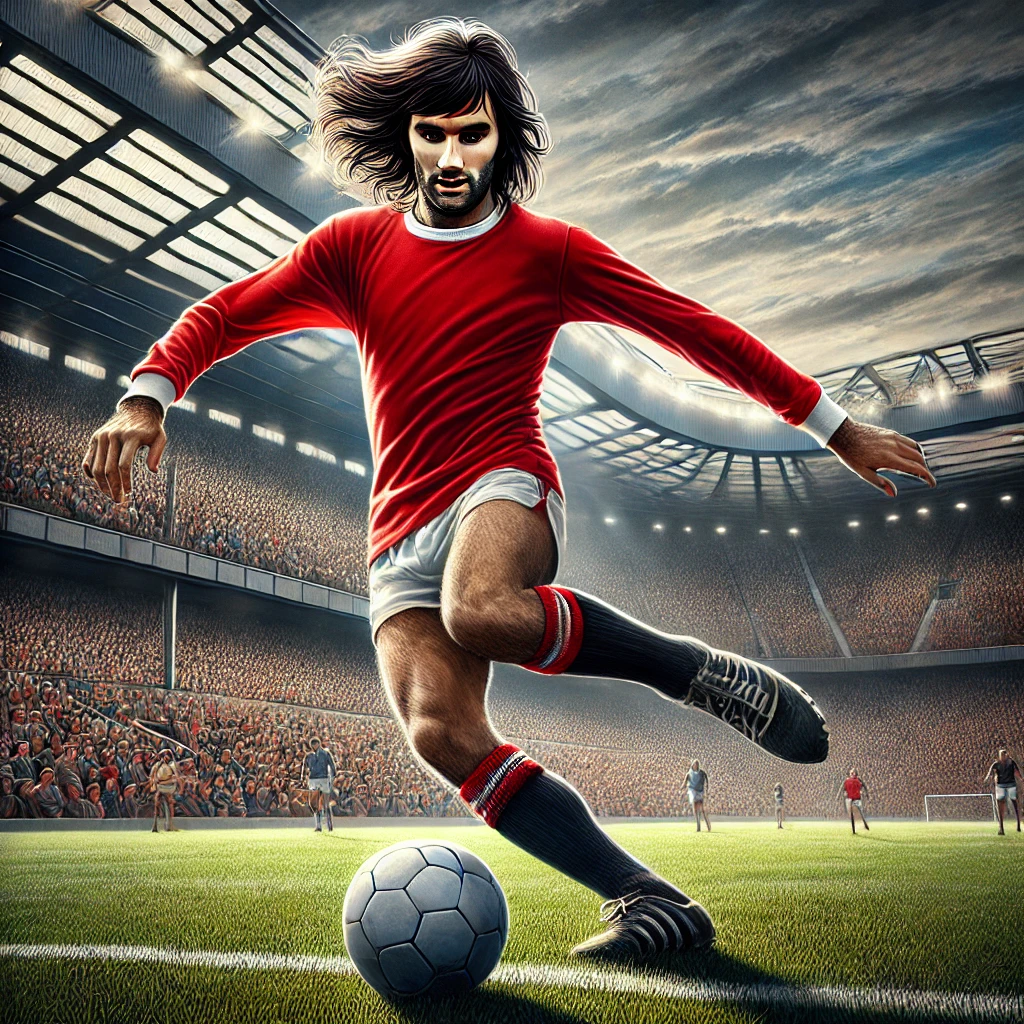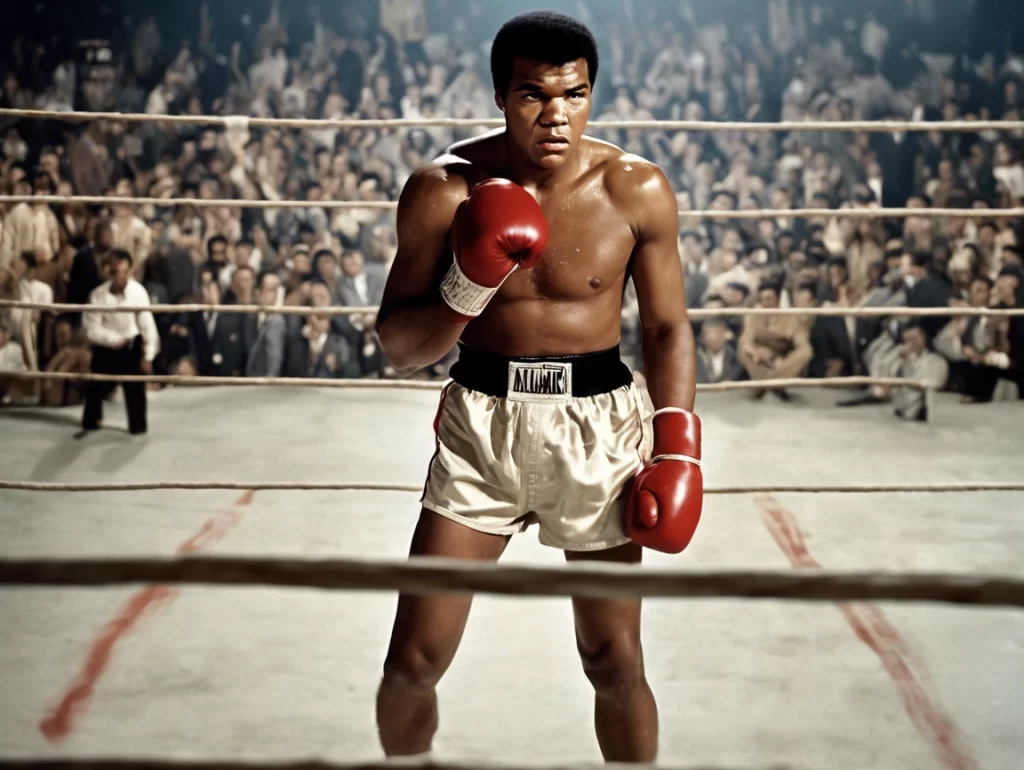Blog 1: The Rise of George Best – A Footballing Prodigy
George Best was born in Belfast, Northern Ireland, on May 22, 1946. From an early age, it was clear he had an extraordinary gift for football. Best’s journey began when Manchester United scout Bob Bishop spotted his talent and famously sent a telegram to United manager Matt Busby that read, “I think I’ve found you a genius.” This discovery set Best on the path to stardom, and at the age of 15, he joined Manchester United’s youth academy. Despite struggling with homesickness and briefly returning to Belfast, Best soon adapted to life in Manchester, and by 17, he made his debut for the club.
Best’s impact on the pitch was immediate and undeniable. He combined exceptional dribbling, pace, and flair with a natural ability to score goals. By the mid-1960s, he was one of the most exciting players in football. His performance in Manchester United’s 5-1 victory over Benfica in 1966, where he scored twice and completely dazzled the opposition, earned him the nickname “El Beatle” from the Portuguese press—a testament to his rockstar-like appeal.
In 1968, at just 22 years old, Best reached the pinnacle of his footballing career. He played a key role in Manchester United’s victory in the European Cup, becoming the first English club to win the prestigious tournament. His 28 goals that season earned him both the PFA and European Footballer of the Year awards, cementing his status as one of the best players in the world. At his peak, Best’s skill on the field, combined with his charismatic personality, made him a global superstar, transcending the world of football.
Off the pitch, Best embraced the lifestyle of a celebrity, often seen in nightclubs, surrounded by models, and indulging in the party scene of the 1960s and 1970s. His good looks, charm, and sense of style made him a media sensation, but the fame came at a cost. As the pressures of superstardom grew, Best struggled with alcohol addiction, and his personal life began to unravel. His performances on the field became inconsistent, and by 1974, at the age of just 28, he left Manchester United, much to the dismay of fans and pundits alike.
Despite brief stints with various clubs, Best was never able to recapture the brilliance of his prime years. His career was marked by flashes of his former genius but overshadowed by his ongoing battles with alcohol. Yet, even in retirement, Best remained an iconic figure. His footballing legacy, particularly at Manchester United, endures to this day, with many considering him one of the greatest players to ever grace the game.
Best passed away on November 25, 2005, but his legacy as a footballing icon remains. He is remembered not just for his incredible talent and contributions to Manchester United but also for being one of the first players to bridge the gap between sports and celebrity culture. Despite his personal struggles, George Best’s impact on football and his status as one of the sport’s all-time greats remains undeniable.


